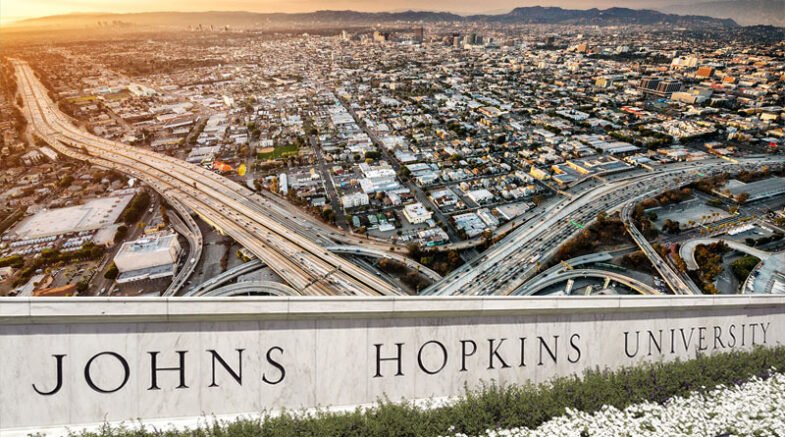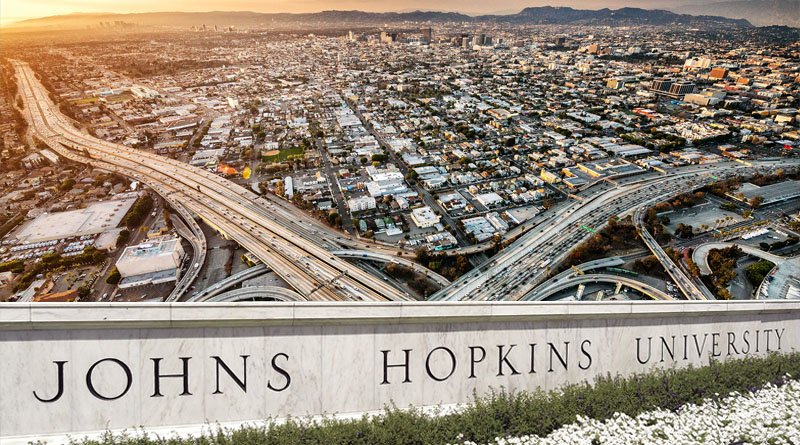The consortium’s research and applications at the nexus of climate change, public health, and transportation will be supported by a $10 million grant from USDOT over a five-year period.

The U.S. Department of Transportation has chosen Johns Hopkins University to serve as the director of a new University Transportation Center that will focus on strategies for protecting the environment. Currently, the U.S.’s largest contributor to climate change is the transportation industry.
A group of experts will work with the Johns Hopkins University Center for Climate-Smart Transportation to conduct research on how to reduce climate change in the transportation industry, with a focus on equity and environmental justice.
The consortium’s research and applications at the nexus of climate change, public health, and transportation will be supported by a $10 million grant from USDOT over a five-year period.
Experts from the University of Utah, Morgan State University, the Massachusetts Institute of Technology, the University of Texas at Austin, and Diné College, a public tribal land-grant university serving the Navajo Nation, are also part of the consortium. The network of historically black colleges and universities includes Morgan State.
Shima Hamidi, PhD, Bloomberg Assistant Professor of American Health in the Department of Environmental Health and Engineering, which spans the Whiting School of Engineering and Bloomberg School of Public Health at Johns Hopkins University, asserts that climate change ought to be at the forefront of all transportation decisions.
Hamidi will serve as the Center for Climate-Smart Transportation’s director and lead researcher. “In the next two decades, transportation-related greenhouse gas emissions—and the associated health and quality-of-life impacts of climate change—will only rise without comprehensive mitigation and resiliency strategies implemented at all levels of government.”
Since 1988, the USDOT’s University Transportation Centers have served as the organization’s research division, influencing local, state, and federal transportation policy and practice. The USDOT received 230 grant applications this year, the most in the 35-year history of the programme.
The infrastructure package put forth by the Biden administration will cover the grants for this year through 2026.
The initial area of focus for the Center for Climate-Smart Transportation will be how alternative fuels like solar and biofuels can be used in transportation. Making the transition to net-zero emissions a reality will be another top priority for the Center.
According to Hamidi, the current state of electric vehicle technology does not lead to net-zero emissions because, on average, these vehicles use 60 percent of the electricity produced by non-renewable fossil fuels.
Researchers from the Center and consortium partners will also research how to advance additional net-zero emissions policies, such as lowering per-capita vehicle miles driven and encouraging transit investment as practical climate solutions.
These objectives will be accomplished by working with local communities and states all over the United States to jointly develop solutions that address needs and are consistent with shared values regarding climate change, claims Hamidi.
All programmes and activities at the Center for Climate-Smart Transportation will be centred on addressing environmental justice through community-centred research. Community members are involved in all stages of the research process, from the formulation of the initial research question to data collection, policy development, and actual implementation.
The Ralph O’Connor Sustainable Energy Institute, which focuses on energy, alternative fuels, and climate change; the Bloomberg American Health Initiative at the Bloomberg School of Public Health, which focuses on five areas, including climate change and environmental challenges; and the Center for Community Health: Addressing Regional Maryland Environmental Determinants of Disease are just a few of the Johns Hopkins University centres that the Transportation Center will draw on for resources and expertise.
